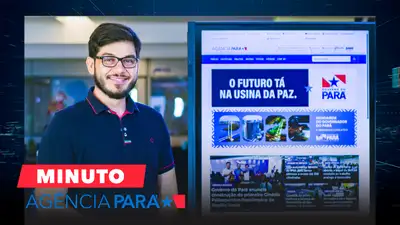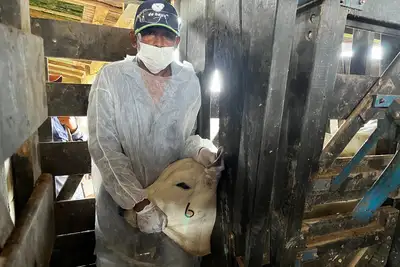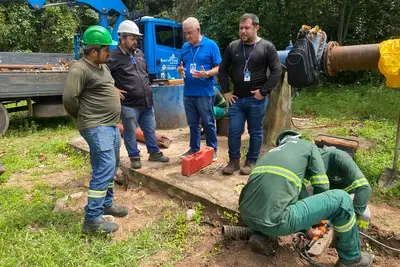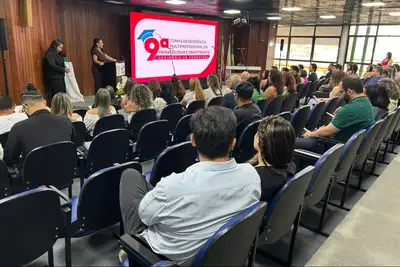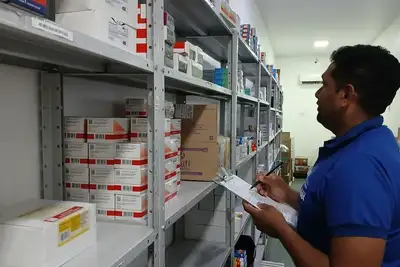Project develops software to identify developmental delays in children in the Pará Amazon
Study funded by Fapespa built an artificial intelligence software accessible from any internet-connected device

Early childhood represents a crucial period for child development. It is during this phase that many deficiencies are identified, and providing adequate support for these children is essential to ensure the solid foundation necessary for their formation. It was in this context that the Intelligent System for the Promotion of Child Development (SDIA) project emerged, as a support tool for inclusion to track developmental deficits and adapt them to the specific realities of the Pará Amazon.
Funded by the Amazon Foundation for Support of Studies and Research (Fapespa) and executed by the Guamá Foundation by researchers from the Applied Computing Research Center of the Federal Rural University of the Amazon (Ufra), the study built an artificial intelligence software accessible from any internet-connected device, developed in alignment with the Growth Manual of the Ministry of Health (2002) and the Brazilian Inclusion Law (LBI). With this technology, the project assists professionals from support networks, parents, and caregivers.
The artificial intelligence emulated the knowledge of the public protocol contained in the Child's Notebook (SUS), through questions and answers, so that, in the end, it became possible to identify whether the child is on track with their development, on alert, or delayed. “With the help of this technological artifact, professionals from support networks will have the possibility to identify children, still in the early childhood period, who may be experiencing developmental delays,” explains the project coordinator, Professor Marcus Braga.
According to the researcher, the idea was driven by a demand from the State Government to provide support for children who are experiencing some type of developmental delay, as defined by Article 208 of the Federal Constitution. However, these children are not always identified, especially those who do not have the practice of going to the doctor for periodic follow-ups, such as low-income children and those living in vulnerable conditions.
“With the SDIA, it was possible to implement a computational solution based on artificial intelligence capable of delivering a practical solution to the problem. “That is, when applied to a significant number of children, it will be possible to have an overview of their developmental delays,” defines the professor.

Training – In coordination with the State Department of Education (Seduc), the project included in its development the training of professionals from the Orlando Bitar Early Childhood Education Reference Center. Fifty professionals from the daycare received intensive training in child development, the Child's Notebook, artificial intelligence, and how to use the SDIA application.
After this training, the application of software tests with children in the classroom was organized. “The teachers accepted the challenge and applied the test with their students, and as the children were evaluated, the system already delivered the evaluation results to the teacher, and the record of the results began to be stored in the system for later access and delivery to the competent authorities,” affirms Braga.
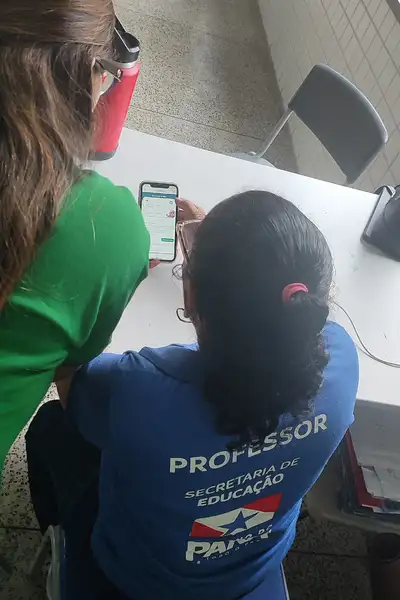
The researcher explains that the solution was validated at international scientific conferences and, now, the prototype can be scaled for use in educational networks, with few adjustments.
Application – After two years of development, the project resulted in two national scientific articles, one international, software registered with the National Institute of Industrial Property (Inpi), and a prototype application that can be accessed from any computational device connected to the internet, without the need for any installation or download.
“We have a robust tool, easy to use, as it is intuitive, and that can provide an assessment indication of the child's development. This allows parents, teachers, and competent professionals to become aware of who these children with delays are, and provide the necessary care and stimulation for their development,” affirms Braga.
At this first moment, the application can be used for free by teachers. According to the project team, there is a possibility for the program to be extended for use in health units, social assistance, and by the parents themselves, allowing potential children with their development outside the ideal to be identified and receive, immediately, the appropriate care and support so that they can be fully integrated into society.
According to Professor Marcus, without the support of Fapespa, the research could not have been developed. “Look, for this project to deliver a prototype, two years of studies were necessary, and that’s how technology emerges, with study, research, tests, errors, corrections, and after a while, the results appear. Science cannot be developed without investment and without support. In Pará, Fapespa has been the great game changer.”
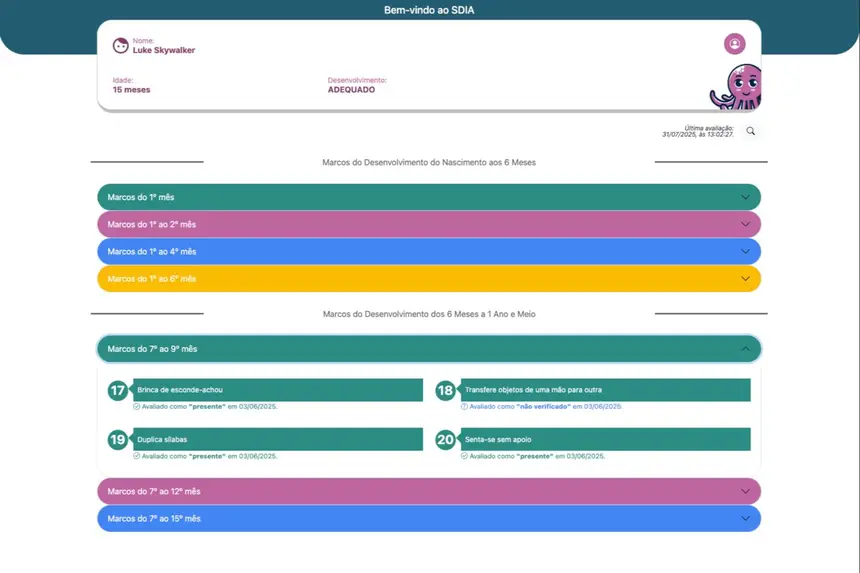
The coordinator also highlights that, in this project, it was possible to use computational resources from the research group that originated from other funding from Fapespa. “By having this infrastructure installed, today, we can participate in various research in several strategic areas in our State,” concludes Braga.
Applied Computing Research Center (NPCA) - Located in Paragominas, the research group is dedicated to investigating applied computing techniques through long-term research projects, umbrella-type, which encompass other more specific and localized research. “With the support of Fapespa, we were able to acquire high-performance computational servers and all the necessary equipment for the continuous development of these works, in addition to scholarships for teachers and students to develop their scientific activities,” informs Braga.
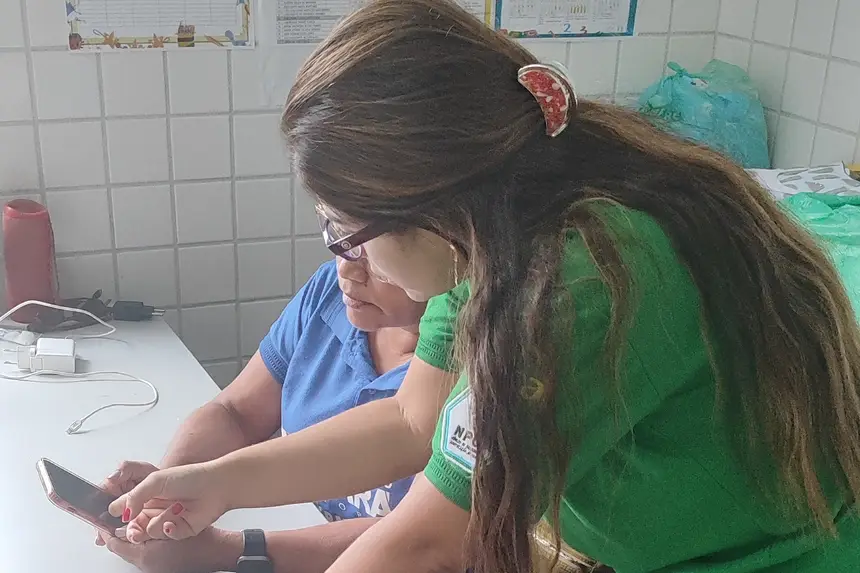
"Pará, under the government of Helder and Hanna, has been very concerned with the development of our children and the special care they need. Fapespa, as an institution that promotes research, attentive to this important state policy, has fostered research aimed at providing answers to many of these challenges. And the SDIA is one of those fantastic projects, which was approved and funded by Fapepa, and which today brings important insights so that we can give the necessary attention to our children in an environment that is extremely important: schools and daycare centers. This is how Fapespa contributes to the development and quality of life of the population of Pará as a whole, especially our children," evaluates the president of Fapespa, Marcel Botelho.
Text: Beatriz Rodrigues, intern, under the supervision of journalist Manuela Oliveira – Ascom/Fapespa






